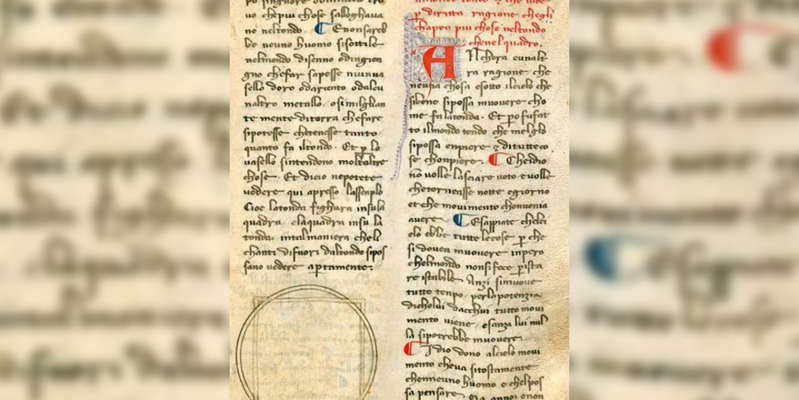
Dante Alighieri's manuscript was first found in Italy
Florentine teacher Julia Bolton Holloway discovered the first known manuscript by Dante Alighieri. This discovery is of particular importance, since scientists have not yet had a single sample of the handwriting of the creator of the “Divine Comedy”, reports The Times.
The manuscripts date back to Dante's student days. He rewrote works on the art of management. The texts were found in two libraries: in Florence and in the Vatican.
Holloway noted that Dante's handwriting was like that of a schoolboy, but he wrote in excellent Tuscan dialect. This dialect is the least of all deviated from Latin and formed the basis of the literary language of Italy. His influence can also be seen in The Divine Comedy.
The only manuscripts from the entire collection were written in the canchellesca script, which Dante probably taught his father. Cheap paper was used for them, which is understandable, because in his youth the future writer was poorer than most of his peers.
“No handwritten texts by Dante have been found, but Leonardo Bruni, a late Renaissance scholar who saw Dante’s handwriting, described it as similar to the one I found,” the researcher noted.
The researchers drew attention to a special sign on the manuscripts: a square superimposed on a circle. This is the symbol used by Dante in The Divine Comedy to describe God.
Experts dated the manuscripts to 1280-1290 years. Dante was then a student of Brunetto Latino, the 13th century Italian philosopher, scientist, notary, politician and statesman. Later, Alighieri placed him in one of the circles of hell, but in a veiled way, so that the philosopher's contemporaries did not guess anything.
A number of other characters in “Hell” are also mentioned in documents written by Latino in Italian. New evidence suggests that some of these documents may have been written or copied by Dante himself.
Earlier it was reported that Dante's descendants insist on revising the verdict handed down to the poet 700 years ago. Recall that the black Guelphs, having seized power in Florence, accused their opponents of the White Guelphs, to whom Dante belonged, of corruption. The poet was sentenced to two years in exile. After the trial, he left his hometown, as it turned out later, forever. Alighieri's descendants consider this decision to be politically engaged and intend to restore justice.

